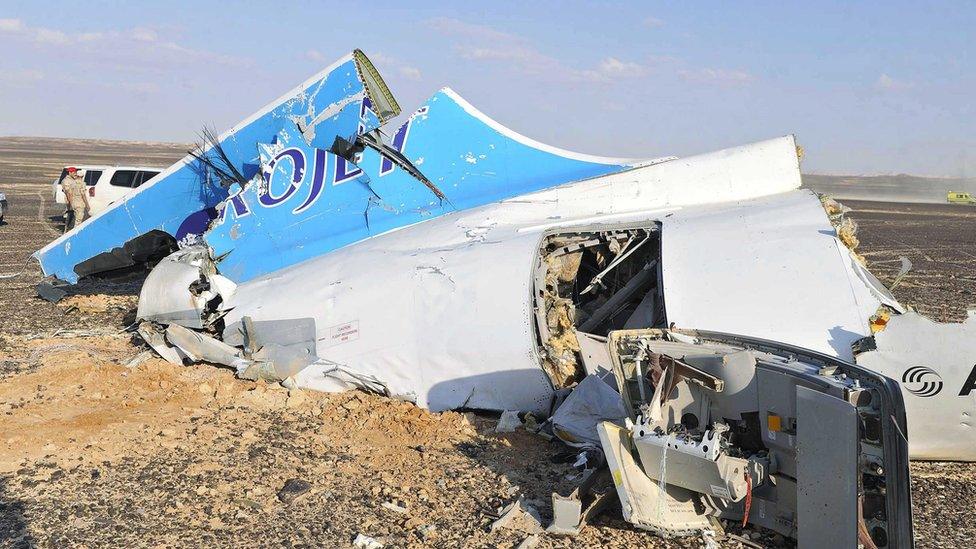Cameron hails UN backing for action against Islamic State
- Published
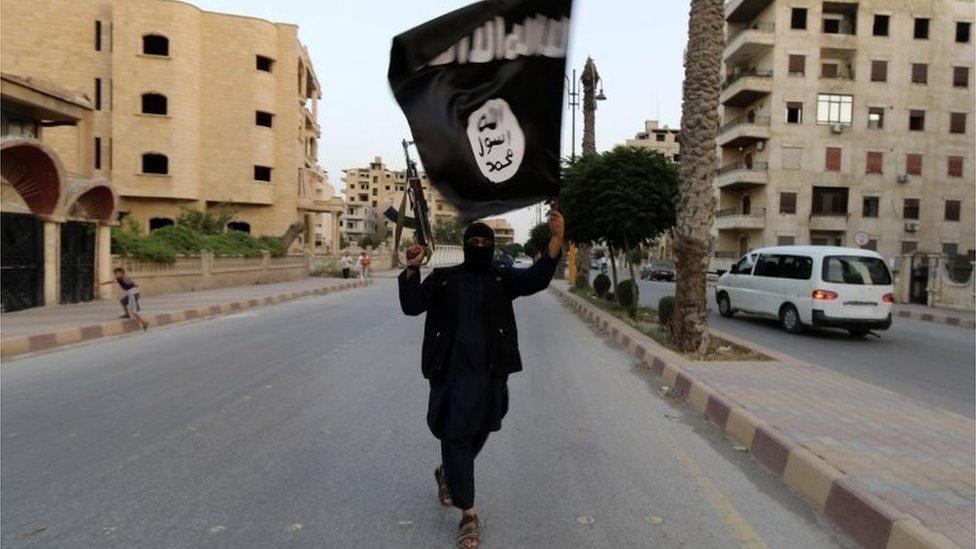
IS is a notoriously violent Islamist group which controls large parts of Syria and Iraq
The UN Security Council's adoption of a resolution to "redouble" action against the Islamic State group, external is an "important moment", David Cameron says.
The French-drafted document asking countries to "combat by all means this unprecedented threat" received universal approval on Friday night.
The PM said the vote "shows beyond doubt the breadth of international support" to "eradicate" IS.
IS has said it carried out the Paris attacks which left 130 people dead.
Mr Cameron is seeking to build cross-party support for UK air strikes against IS, also known as Isil, in Syria, though there is no timetable for a Parliamentary vote.
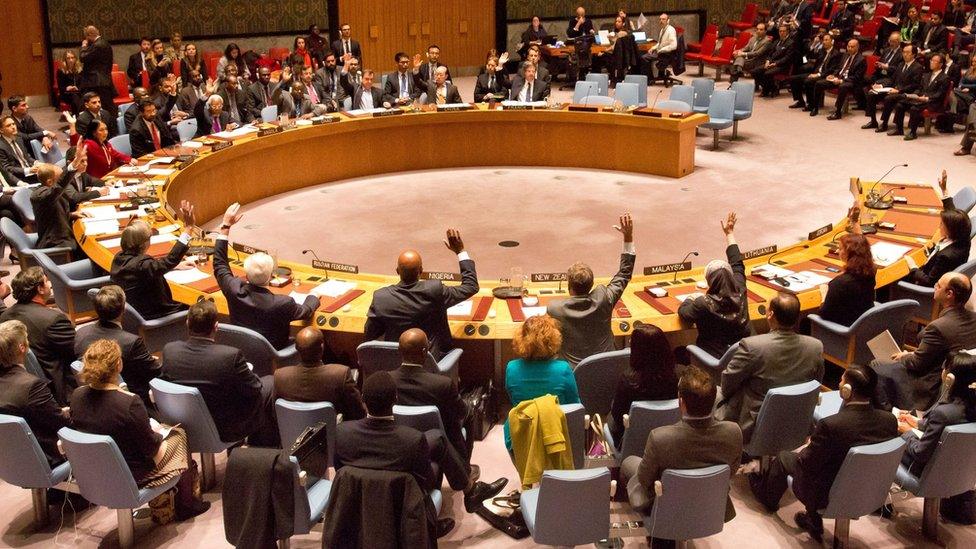
The French-drafted resolution was unanimously carried by the UN Security Council
Meanwhile, Belgium has raised its terror alert in the Brussels region to the highest level, warning of a "very serious" and "imminent" threat. The Brussels metro network has been closed for the weekend.
The UK Foreign Office has updated its travel advice for Belgium, external, advising people to avoid busy places, including concerts, stations, airports, and shopping centres.
'Unambiguous message'
The UN resolution, co-sponsored by the UK, calls on nations to "redouble and co-ordinate their efforts to prevent and suppress terrorist attacks" using all necessary measures.
The document condemns a number of terror attacks, including the killings of 30 Britons in a Tunisian beach resort in June.
British ambassador to the UN Matthew Rycroft said it was a "clear, unambiguous message that there will be no respite from our collective efforts to stop, suppress and destroy Isil".

Analysis
By Iain Watson, political correspondent, BBC News
The prime minister has always been clear that he believes extending air strikes from Iraq to Syria would be legal and wouldn't require UN approval.
But he has described the UN resolution as "an important moment". On one level, signalling the international community's resolve is certainly significant - but David Cameron clearly believes it has also made his own case for military action easier to argue.
He'll hope the resolution will give the green light to some sceptics on his own backbenches to vote for air strikes in due course, but more significantly it could provide cover for a significant number of Labour MPs to do the same.
However, the prime minister hasn't suggested that a parliamentary vote is imminent.
It's unlikely that Labour leader Jeremy Corbyn will regard last night's resolution as sufficient grounds for ending his opposition.

The text was backed by Russia, which has been dealing with the aftermath of a bomb which brought down a Metrojet Airbus 321 that crashed in the Sinai peninsula, on 31 October.
The IS-linked Sinai Peninsula group says it carried out that attack, which killed 224 people, most of whom were Russian tourists.
The UN resolution does not provide a legal basis for military action and does not invoke the chapter of the UN charter authorising the use of force.
'World united'
But Mr Cameron - who insists the legal case for action is solid even without such approval - hopes it will help persuade Labour MPs to approve an escalation of the UK's military involvement.
MPs rejected air strikes against Syrian government forces in a 2013 vote.
Labour leader Jeremy Corbyn is expected to use a speech on Saturday to underline his position of staunch opposition, and will state that being "at the centre of a succession of disastrous wars" has undermined British security.
Mr Cameron, who is due to set out his "comprehensive case" for strikes against IS in Syria, said after the UN vote that "the world has united" against the terror group.
He also said it demonstrated "the breadth of international support for doing more in Syria and for decisive action to eradicate" IS.
The UN Security Council had also reiterated its determination to secure a "political solution" to the conflict in Syria, he said.
"Britain will continue to support our allies who are fighting Isil in Syria," he said.
"I will continue to make the case for us to do more and to build support in Parliament for the action that I believe is necessary for Britain to take to protect our own security, as part of a determined international strategy.
"We cannot expect others to shoulder the burdens and the risks of protecting this country."

What is the so-called Islamic State?
IS is a notoriously violent Islamist group which controls large parts of Syria and Iraq. It has declared its territory a caliphate - a state governed in accordance with Islamic law - under its leader Abu Bakr al-Baghdadi.
What does it want?
IS demands allegiance from all Muslims, rejects national borders and seeks to expand its territory. It follows its own extreme version of Sunni Islam and regards non-believers as deserving of death.
How strong is IS?
IS projects a powerful image, partly through propaganda and sheer brutality, and is the world's richest insurgent group. It has about 30,000 fighters but is facing daily bombing by a US-led multi-national coalition, which has vowed to destroy it.

- Published21 November 2015
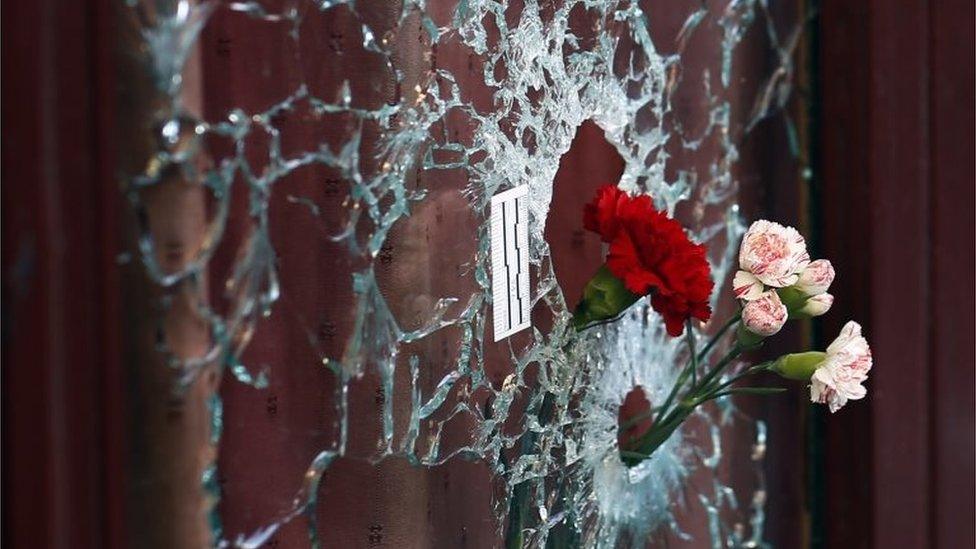
- Published20 November 2015
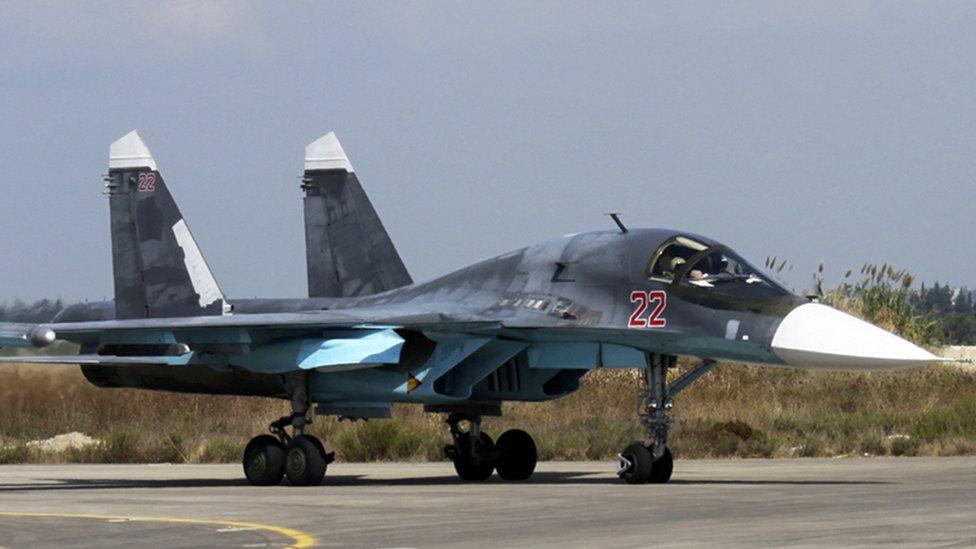
- Published20 November 2015
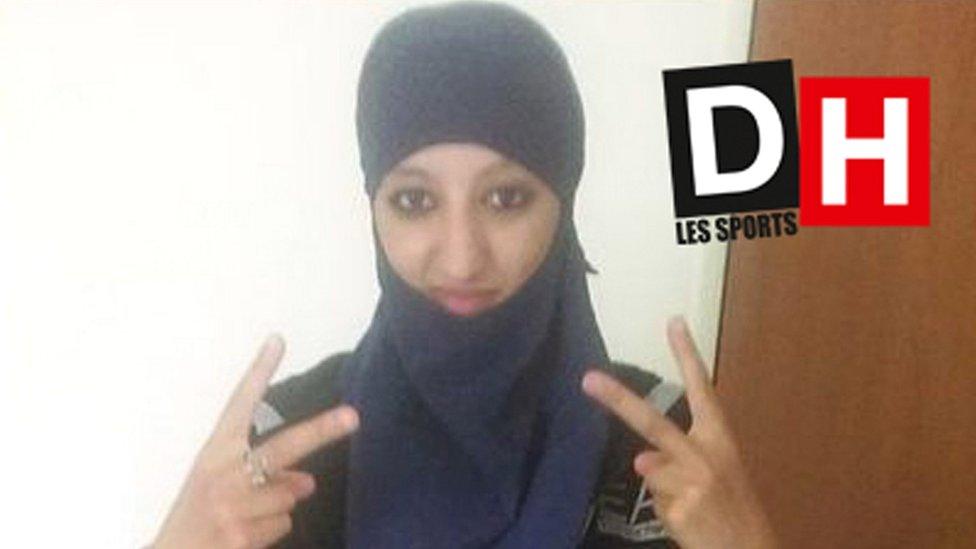
- Published18 November 2015
